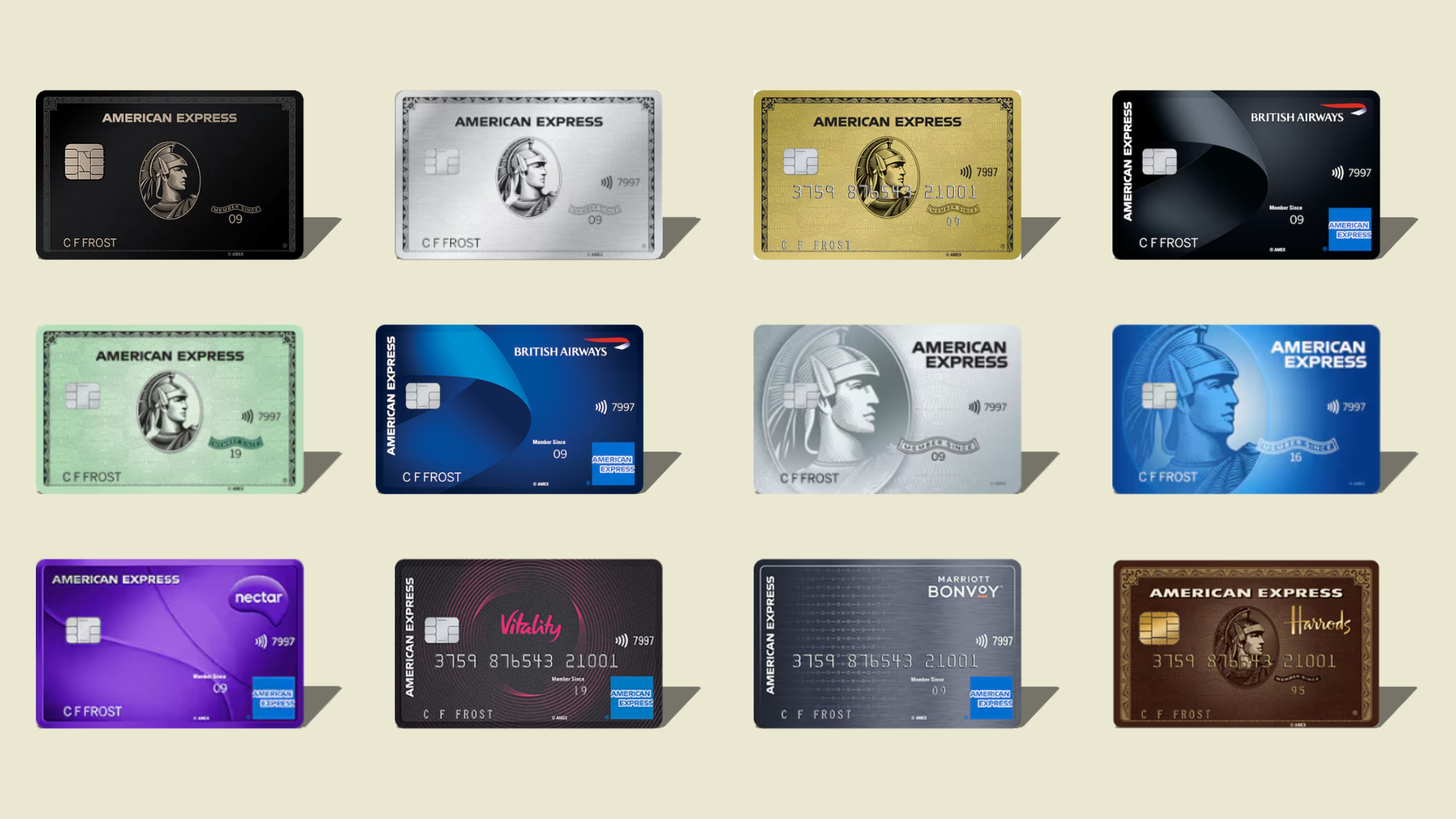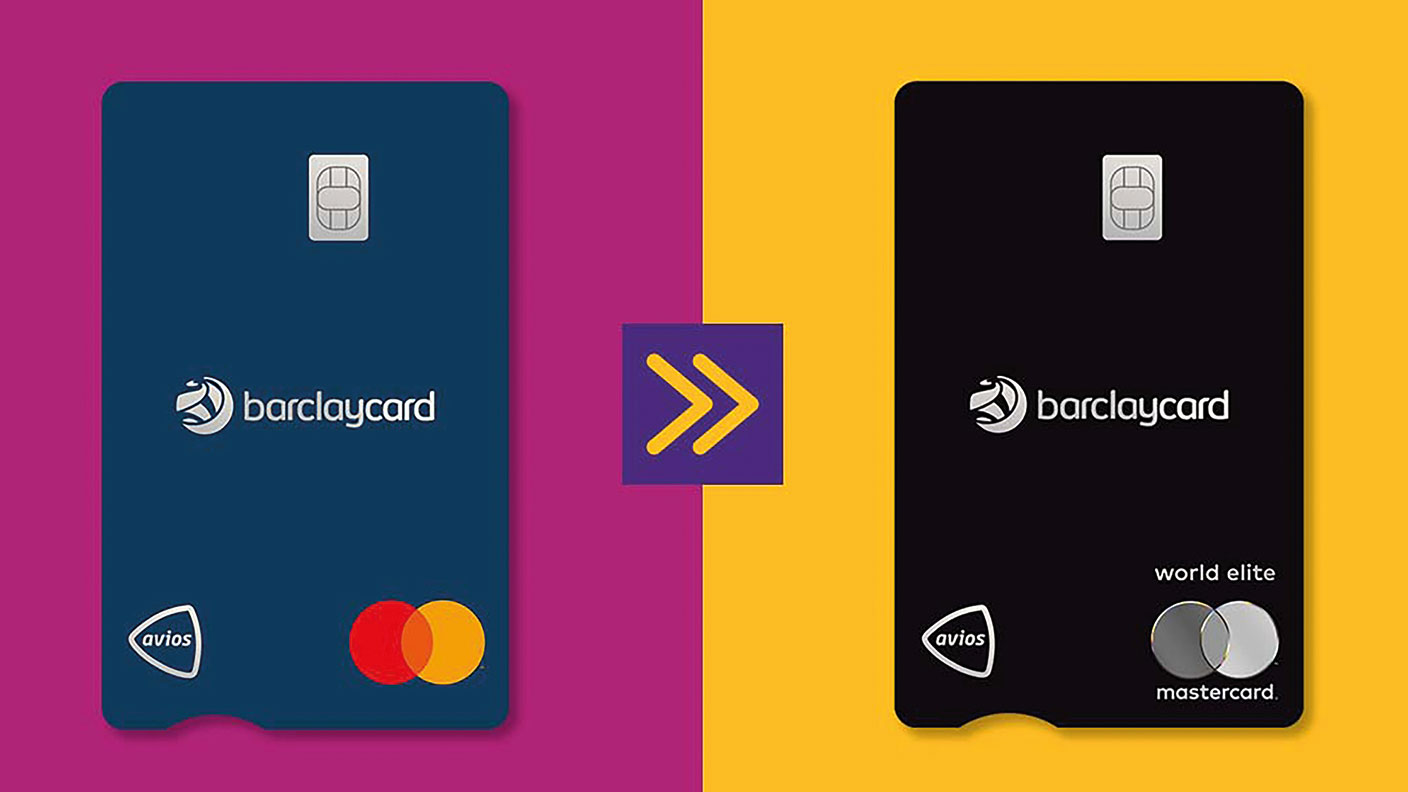Credit-card perks set to shrink
Rewards offered by credit cards are won't be as generous as before, but there are still some enticing deals, says Ruth Jackson.

Get the latest financial news, insights and expert analysis from our award-winning MoneyWeek team, to help you understand what really matters when it comes to your finances.
You are now subscribed
Your newsletter sign-up was successful
Want to add more newsletters?

Twice daily
MoneyWeek
Get the latest financial news, insights and expert analysis from our award-winning MoneyWeek team, to help you understand what really matters when it comes to your finances.

Four times a week
Look After My Bills
Sign up to our free money-saving newsletter, filled with the latest news and expert advice to help you find the best tips and deals for managing your bills. Start saving today!

If you need to borrow money, then this is a great time to get a credit card, with interest-free deals for balance transfers and purchases stretching for as long as two-and-a-half years in some cases. But, if you are one of the many who dutifully pay their bill in full each month, you may have noticed the rewards for being good with your money are dwindling.
New European Union rules that came in this year cap the charges that credit-card firms can levy on shops each time you pay with plastic. These charges fund the generous cashback, points and airmiles you earn while you shop, so many credit-card firms have been quietly cutting back on the rewards you can earn from spending with your card.
The latest company to trim its rewards programme is Santander, which has announced that the amount of cashback its 123 credit-card holders can earn will be reduced from February 2017. The card currently allows users to earn cashback rates of between 1% and 3% on certain spending, but the new rules will cap the maximum cashback at a stingy £9 a month. Given there is a £3 per month charge for having the card, it hardly seems worth bothering with when the new rules come in.
MoneyWeek
Subscribe to MoneyWeek today and get your first six magazine issues absolutely FREE

Sign up to Money Morning
Don't miss the latest investment and personal finances news, market analysis, plus money-saving tips with our free twice-daily newsletter
Don't miss the latest investment and personal finances news, market analysis, plus money-saving tips with our free twice-daily newsletter
The good news is that not all credit-card providers are turning into Scrooge. Due to a quirk in the law, the EU ruling doesn't apply to American Express, so the company is still running some generous offers although it might trim these back if it ends up way out in front of the competition. Loyalty credit cards, such as those offered by Asda and John Lewis, also still offer tempting deals.
The key now is to make sure you use your card wisely in order to make the most of the rewards on offer. Many cards now offer different reward rates depending on where you use them, so make sure you use the right cards in the right shop. And don't forget the golden rule of rewards cards be sure to pay the balance off in full each month. These credit cards tend to have whopping interest rates, so if you miss a payment, the interest charges will wipe out the rewards in a matter of days.
The best cards for bonuses
In terms of cashback amounts, the best offering available is American Express's Platinum Cashback card. You will pay £25 a year to have it, but in return you get 5% cashback for the first three months on up to £2,500 of spending. You then get 1% cashback on your first £10,000 spent in a year, and 1.25% on spending above that.
If you spend £1,500 a month on the card, you'd earn £770 back over the first three years, according to TotallyMoney.com. New customers applying before 31 January 2017 will also earn 3% cashback on Amazon spending for the first three months. It's a good idea to set up a direct debit to make sure you pay off your balance in full each month otherwise you'll be hit with a 22.9% APR.
The big benefit with a cashback card is that you are earning cold, hard cash. Unlike airmiles or other rewards systems, your earnings can't be devalued by the card firm meddling with the points system. However, it is possible to get incredible value from rewards schemes if you know how to spend your points wisely.
Anyone looking to earn free flights should look at the British Airways's American Express card. You earn one Avios point for every pound spent, and 10,000 points will get you a flight within Europe. Spend more than £20,000 a year on your card and you'll get a free flight for a companion. The card's interest rate is 22.9% APR.
If you always shop at the same supermarket, it could be worth getting that shop's reward card, as all the big stores reward you with points to spend in store. But these are only worth bothering with if you will always shop at that brand in order to build up your rewards, and will be happy to spend your rewards there too.
In the news this week
When insurance premium tax (IPT) was first introduced in 1993, it was at a "nugatory rate" of 2.5%, says Patrick Hosking in The Times. Last week, Philip Hammond raised it from 10% to 12%, taking the tax from a once "innocuous flea bite" to a "meaty mouthful", that will soon cost the average household £226 a year. The Treasury loves IPT: it's cheap to collect because insurers "do all the work", it's "near-impossible to evade" and it collects an extra £840m for the coffers, which is more than the BBC licence fee and will soon overtake wine duty and inheritance tax.
For now, IPT does not seem to "trigger the nation's inner Victor Meldrew", but if this continues, "the poor will start to bail out". An estimated one million cars are already driven uninsured and 25% of houses don't have contents insurance. "That will have catastrophic costs for individuals and will present a wider bill for society to pick up."
Savers watching their "nest eggs slowly shrink" due to super-low interest rates won't have taken much comfort from the chancellor's newly announced National Savings & Investment (NS&I) bond, to be launched next spring, says Lindsay Cook in the Financial Times. The £3,000 three-year savings bond is expected to pay a "market-leading" rate of 2.2%, but it is still a "pale imitation" of last year's one- and four-year Pensioner Bonds, which paid out 2.8% and 4% respectively.
After tax, the rate is just 1.76%, says Sylvia Morris on MoneyObserver.com, and although that might be better than the best three-year bonds on offer, you could actually lose out to inflation if government predictions on inflation prove correct. The Office for Budget Responsibility forecasts inflation of 2.3% in 2017, 2.5% in 2018 and 2.1% in 2019.
Hammond also quietly imposed a national insurance (NI) tax hike of £200 a year on people earning more than £43,000, says Annabelle Williams in The Times; a change slipped into the "small print" of policy documents released after his statement. The change is effective from April 2017, and means that workers paying 12% NI on annual earnings up to £43,000, and 2% on anything above, will now pay the 12% rate on earnings of up to £45,000, at which point the 2% will once again kick in. So much for the government's "trumpeted" income-tax savings.
Get the latest financial news, insights and expert analysis from our award-winning MoneyWeek team, to help you understand what really matters when it comes to your finances.

Ruth Jackson-Kirby is a freelance personal finance journalist with 17 years’ experience, writing about everything from savings accounts and credit cards to pensions, property and pet insurance.
-
 Should you buy an active ETF?
Should you buy an active ETF?ETFs are often mischaracterised as passive products, but they can be a convenient way to add active management to your portfolio
-
 Power up your pension before 5 April – easy ways to save before the tax year end
Power up your pension before 5 April – easy ways to save before the tax year endWith the end of the tax year looming, pension savers currently have a window to review and maximise what’s going into their retirement funds – we look at how
-
 What are British Airways Amex companion vouchers, and how do they work?
What are British Airways Amex companion vouchers, and how do they work?American Express customers with British Airways credit cards can effectively double the value of their Avios points by using a companion voucher. We look at what they are, and how you can use them.
-
 American Express introduces 'Plan It' payment instalment option
American Express introduces 'Plan It' payment instalment optionNews Amex users can now split parts of their credit bill into further instalments. Is it worth it?
-
 Which is the best American Express credit card?
Which is the best American Express credit card?American Express credit cards can help you earn cashback or reward points on everyday spending, but which card is the best for you? We compare the options
-
 How to earn cashback on spending
How to earn cashback on spendingFrom credit cards and current accounts to cashback websites, there are plenty of ways to earn cashback on the money you spend
-
 Slash the cost of your next holiday with Avios points
Slash the cost of your next holiday with Avios pointsMiscellaneous Avios points can cut the cost of travelling - we explain how using the right credit card and bank account can help you quickly build up thousands of Avios points.
-
 The best credit cards for cashback
The best credit cards for cashbackThe best credit cards for cashback can help you earn rewards on everyday spending. We list some of the top deals on the market
-
 The best credit card for collecting air miles
The best credit card for collecting air milesAdvice The Barclaycard Avios and Avios Plus are more widely accepted than Amex, says Ruth Jackson-Kirby.
-
 Amazon signs a truce with Visa on credit card fees
Amazon signs a truce with Visa on credit card feesNews Amazon has reached an agreement with Visa that allows its customers to continue paying by Visa credit card. Saloni Sardana explains what's happened and why.